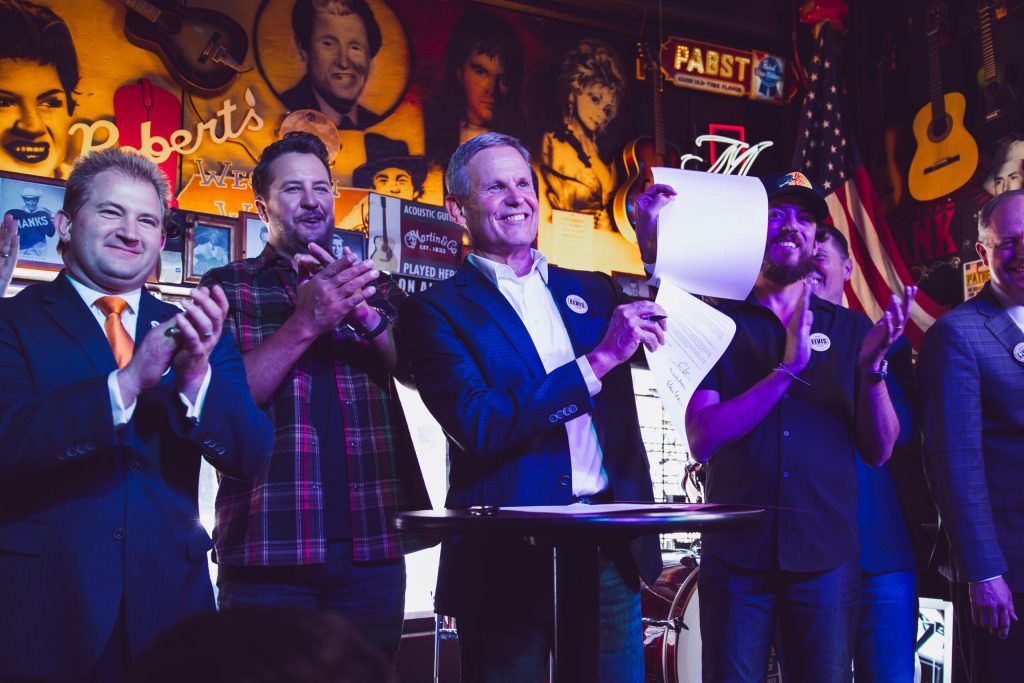On Thursday, Tennessee became the first state to pass a law that aims to protect creative artists from the abuse of their voices, images, and likenesses.
At Robert’s Western World in Nashville, Gov. Bill Lee signed the ELVIS Act, or Ensuring Likeness Voice and Image Security, with musicians Chris Janson, Luke Bryan, JesseLee Jones, Emily Ann Jones, and Recording Industry Association of America CEO Mitch Glazier present.
During the signing ceremony, Bryan spoke about the importance of AI protections in the music industry. The Tennessean reported the news. According to The Tennessean, Bryan, the singer of “This Is How We Roll,” mentioned how managers struggle to differentiate between AI recordings and real ones.
Bryan mentioned, “I’ve received recordings of my voice on my phone that I can't tell are mine. It's very convincing.”
Janson expressed concerns that AI could negatively impact the music industry, making it difficult for musicians to tour and provide for their families.
Janson emphasized the importance of live, authentic music and its connection to real people.
Janson stated, “The AI world's dishonesty is revealed by realness and truth. As they say in this town, the best song always wins.”
Lee explained in a press release. press release Lee explained that while Tennessee’s existing law protected name, image, and likeness, it didn’t specifically address new AI models that enable human impersonation and unauthorized fake works.
The governor expressed concerns about the exploitation and theft of artists' integrity, identity, and humanity.
The law enhances existing protections by including “voice” to shield against the improper use of someone’s name, image, and likeness.
Tennessee Senate Majority Leader Jack Johnson highlighted the challenges posed by AI for singers, songwriters, and other music professionals.
House Majority Leader William Lamberth stressed the need to support the responsible progression of AI technology without jeopardizing the music industry's future.
Glazier praised Tennessee’s efforts and called for swift action on similar legislation from more states and the US Congress. The law was also backed by the Academy of Country Music and other industry groups.



